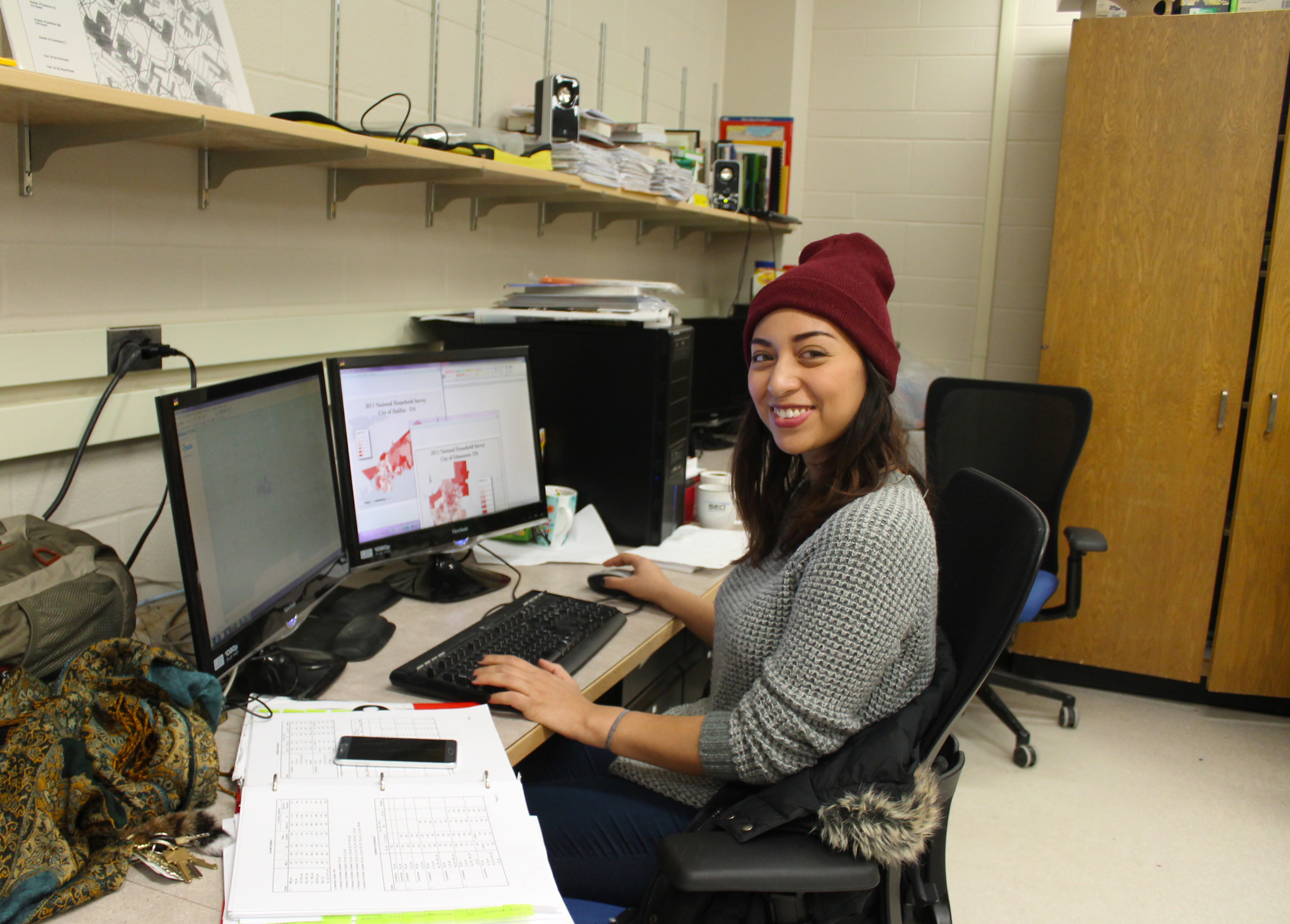
Research and Community-Building
Jessica Alegria is in her final year of the Regional and Urban Planning program at the University of Saskatchewan. She has found that this program, alongside her work with the Canadian Roots Exchange, has fostered her interest in community-building, refugee and immigrant rights, and conservation of culture and heritage.
Jessica Alegria’s undergraduate experience at the University of Saskatchewan has been nothing short of a journey. Like many students trying to find their niche in the post-secondary world, Alegria followed a couple of different paths before finding a home in the university’s Urban Planning program. “It’s been the long way around,” she laughs as she reflects on her continual pursuit of academia. Now in her final year of her degree, Alegria shares the formative experiences that have helped her to merge her passions: research, social justice, and community-builing.
Last spring, Alegria applied for an opportunity to do research with one of her Urban Planning professors, Dr. Scott Bell. He put out a call saying that he was looking for a student assistant. Upon hearing this, Alegria admits that the nerd in her jumped at the opportunity.
Having received the position along with another classmate, Alegria shared how she initially doubted her ability to perform research duties, “I was concerned that I wouldn’t have enough experience.” Despite these misgivings, she found that her experience as an undergraduate research assistant was beyond what she could have hoped for and the project itself turned out to be an area of interest for Alegria.
“We were looking at the effects of changing from the long form census in Canada to the short form and the implications of that – if that has had any effect in terms of underrepresenting populations that are disadvantaged with an added spatial component. It had a little bit of social justice bend to it that I really like.”
Alegria found that her research assistantship encouraged her to grow both personally and professionally. It was a summer of being outside her comfort zone, which pushed Alegria to new depths of learning and experience.
“…There was a lot of me at a computer and this technical stuff that normally makes me very nervous, but it was fine. We were given enough space and time and guidance to figure our way around it […] I was challenged the right amount so I wasn’t too overwhelmed.”
Community-Building
 |
In addition to her studies, Alegria works with the Canadian Roots Exchange (CRE), an organization that aims to build bridges between Indigenous and non-Indigenous youth in Canada by creating opportunities for dialogue and intercultural learning.
Since Alegria was born in Texas to Salvadoran refugees and raised in Saskatoon, she felt an affinity towards the organization. “Being that my family came to Canada as refugees, I never really knew what my role was in this issue or debate, if we want to call it that...But I know that it’s a contentious, delicate thing.”
Alegria got involved with CRE’s Saskatoon branch first as a volunteer with the reconciliation team where she faciliated workshops on Aboriginal issues both historical and current such as reconciliation and community diversity. Since then, she has taken on the role of Program Officer in the Saskatoon office here at the U of S. “We do everything in teams of Indigenous and non-Indigenous. So I am the non-Indigenous – at least to this part of the world – program officer along with my other co-worker who is a Cree woman from here.”
Since the U of S CRE branch is still in its beginning stages, Alegria says they are in the process of setting down roots, meeting community groups, and meeting with partners with which collaborations have happened in the past. However, she has found that her experience as co-president of AXIS – the Association for Exchange and International Students – has also been helpful in informing her own leadership capabilities, and the relationship building process on campus that she has already established.
Connecting Community-Building & Research
When asked about how these two areas of her life connect – urban planning research and community building – Alegria admitted that she worried her new position with CRE would not employ the planning skills she had acquired from her degree and from her research experience over the summer. Luckily, her research supervisor Dr. Bell, assured her that in whatever job she pursues, she can always take into consideration the spatial components of her work.
As a result, Alegria has come to realize for herself how these different areas of her life are excellent complements for one another. Moving forward, Alegria sees herself continuing on in her position with Canadian Roots Exchange, but she also sees herself furthering her education.
Alegria hopes to enter a master’s program that will allow her to not only pursue her interest in research, but also her passion for social justice and community-building. Whatever is next will be sure to require her diverse skill set and will extend her journey within and beyond her Urban Planning degree.
Written by Aimee Ferre

